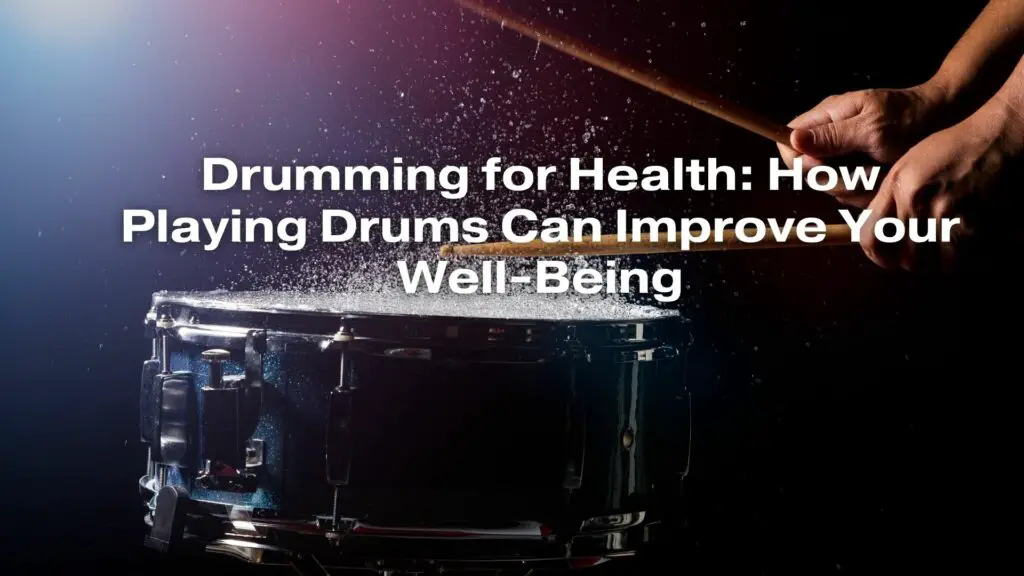Music has long been recognized as a powerful force for promoting well-being, and drumming is no exception. The act of playing drums, whether as a novice or an experienced drummer, offers a range of physical, mental, and emotional benefits that can enhance your overall health. In this article, we’ll explore the therapeutic and holistic advantages of drumming and how it can contribute to your well-being.
1. Stress Reduction:
Drumming provides an outlet for stress relief. The rhythmic and repetitive nature of drumming helps calm the mind, reduce anxiety, and lower stress levels. It creates a meditative state that allows you to disconnect from daily worries and focus on the present moment.
2. Improved Mood and Emotional Release:
Drumming can elevate your mood and provide a means of emotional expression. The act of hitting a drum and producing rhythm can be cathartic, helping individuals release pent-up emotions and find a sense of release and joy.
3. Enhanced Coordination and Motor Skills:
Drumming requires the coordination of both hands and feet, which can improve motor skills and fine-tune hand-eye coordination. This can be particularly beneficial for individuals of all ages, from children to seniors.
4. Boosted Immune System:
Studies have shown that engaging in drumming can stimulate the immune system. The act of drumming, particularly in a group setting, can lead to an increase in the production of natural killer cells, which play a key role in the body’s defense against viruses and cancer.
5. Social Connection:
Drumming is often a communal activity, whether it’s in drum circles, music classes, or bands. This social aspect can enhance a sense of belonging and connection with others, fostering positive social relationships and reducing feelings of isolation.
6. Cognitive Benefits:
Drumming challenges the brain by requiring participants to maintain a steady beat, listen to others in the group, and improvise. This cognitive engagement can improve mental alertness and concentration.
7. Pain Management:
Drumming can help with pain management by diverting attention away from physical discomfort and focusing on the rhythmic patterns and music. It offers a non-pharmacological approach to pain relief.
8. Mindfulness and Mind-Body Connection:
Drumming encourages mindfulness as it draws individuals into the present moment. It fosters a mind-body connection, helping participants become more attuned to their physical sensations and emotions.
9. Self-Expression and Creativity:
Drumming is a form of self-expression that allows individuals to communicate and express themselves in a non-verbal way. It encourages creativity and self-discovery.
10. Physical Fitness:
Drumming can be physically demanding, especially when playing larger drum sets or engaging in more energetic drumming styles. It provides a full-body workout that can improve cardiovascular health and strength.
11. Therapeutic Applications:
Drum therapy is a recognized form of music therapy that employs rhythm and drumming to address specific physical, emotional, and psychological challenges. It is used to help individuals with conditions ranging from autism to post-traumatic stress disorder.
In conclusion, drumming offers a holistic approach to improving well-being, encompassing physical, mental, and emotional aspects. Whether you’re a seasoned drummer or a beginner, the act of playing drums can be a powerful tool for self-care and self-expression. So, whether you’re drumming alone in your room, joining a drum circle, or participating in a music therapy program, the benefits of drumming for health are truly remarkable and accessible to everyone.


